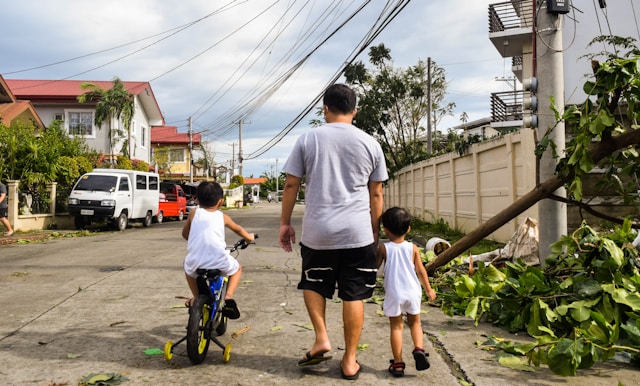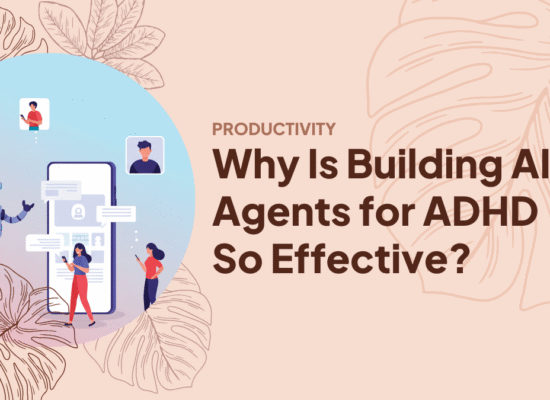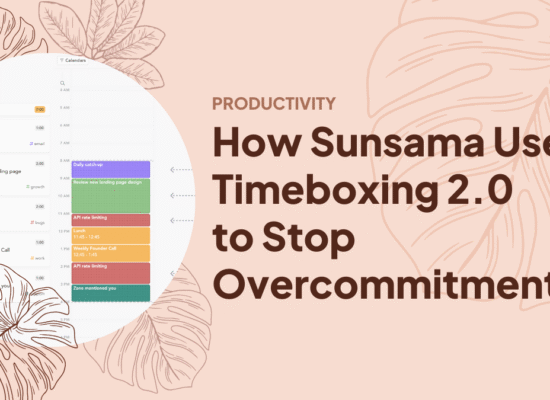Table of Contents
Toxic Filipino culture patterns often remain undiscussed despite their significant impact on family dynamics and individual well-being. When I arrived at my family reunion last year, I was immediately greeted with “Tumaba ka!” (You got fat!) instead of a warm hello—an experience countless Filipinos can relate to. These harmful behaviors perpetuate across generations like unwanted heirlooms, causing psychological damage while remaining normalized within our communities.
As someone who’s navigated these waters professionally and personally, I’ve observed how these patterns create ripple effects that extend far beyond individual interactions. The complex interplay between colonial history, collectivist values, and modern pressures has created unique challenges within Filipino families that deserve thoughtful examination.
Understanding the Roots of Toxic Family Culture
Filipino family problems don’t exist in isolation—they’re deeply embedded in historical and cultural contexts that require examination. To address these issues effectively, we must first understand their origins:
- Historical Influences and Colonial Impact: The Philippines’ history of colonization under Spanish and American rule created hierarchical thinking patterns where proximity to colonizer standards determined social standing. Though colonizers departed decades ago, this mentality persists in modern status markers and social evaluations that divide communities.
- Collectivist Values vs. Individual Autonomy: The collectivist nature of Filipino society often blurs boundaries between individual autonomy and community involvement. Bodies, careers, relationships, and personal choices become subject to family evaluation because individual choices reflect on the family name, creating a sense of stakeholdership in personal decisions.
- Traditional Hierarchy and Authority Structures: Traditional Filipino families maintain strict hierarchical structures where elders feel entitled to direct the paths of younger generations. This reinforces patterns of criticism and intervention that can stifle personal growth and expression, particularly for those who diverge from expected paths.
Three Persistent Toxic Behaviors in Filipino Families

1. Weight Comments: Our Cultural Greeting
“Tumaba ka!” or “Pumayat ka!” might be the most common Filipino greetings after “Kumusta ka?” Many of us have learned to brace for these comments at family gatherings, knowing our physical appearance will be assessed before anything meaningful is discussed.
This behavior creates several significant impacts:
- Reinforces unhealthy body standards and contributes to poor body image
- Creates anxiety around family gatherings
- Normalizes judgment as a form of connection
- Particularly harmful for vulnerable individuals like teenagers or those with eating disorders
The contradiction becomes particularly jarring when these comments come from families that pride themselves on Christian values of kindness and compassion, revealing a blind spot in cultural self-awareness.
2. Unsolicited Life Critiques
Beyond body comments lies a deeper pattern: the cultural permission to openly criticize life choices. Career paths, romantic partners, parenting styles, and financial decisions all become subject to family evaluation and often, disapproval.
The consequences of this pattern include:
- Decision paralysis and constant seeking of external validation
- Secret-keeping to avoid criticism
- Decreased authenticity in relationships
- Difficulty developing internal validation systems
For Filipino women with ADHD, these critiques can be especially damaging. The intersection of gender expectations, neurodiversity, and cultural norms creates unique challenges. While Filipino culture often expects women to maintain traditional roles with precision and organization, ADHD traits like forgetfulness, time blindness, or non-linear thinking may be misinterpreted as laziness or incompetence rather than recognized as neurodivergence.
Many Filipino women with ADHD report feeling doubly judged—first for not meeting cultural expectations of femininity and organization, and second for displaying behaviors that aren’t recognized or understood within traditional Filipino contexts where ADHD awareness remains limited.
3. Status Obsession and Materialistic Evaluation
The third toxic pattern permeates many Filipino communities: measuring human value through status symbols and socioeconomic markers. Family events become subtle class evaluations—noting who arrived in which car, which family members live in which neighborhoods, whose children attend prestigious schools.
This behavior has profound consequences:
- Financially destructive decisions to maintain appearances
- Relationships becoming transactional rather than authentic
- Children internalizing that worth comes from external achievements
- Communities fragmenting along socioeconomic lines
For many Filipino families, the pressure to “save face” and project success drives spending beyond means, creating cycles of debt and financial stress that remain hidden behind carefully maintained appearances.
Breaking Harmful Cycles: Practical Strategies

Responding to Weight Comments
When faced with comments about your body, consider these effective responses:
- Direct boundary-setting: “I prefer not to discuss my body. How have you been?”
- Humorous deflection: When someone says “Tumaba ka!” responding with “And also with you!”—mimicking church responses—often creates enough surprise to break the pattern.
- Educational approach: “I’m working on appreciating my body for what it can do rather than how it looks. Comments about weight can be harmful, especially for young people.”
- Simple challenge: A calm “So?” followed by silence forces the commenter to reflect on why they think your weight deserves commentary.
Reclaiming Autonomy from Life Critiques
Breaking the cycle of unsolicited life critiques requires strategic approaches:
- Information management: Practice selective transparency about life details—it’s not dishonesty; it’s boundary-setting.
- Confident stance: “I appreciate your concern, but I’ve researched this decision thoroughly and feel confident in my path.”
- Interest reversal: “I’ve shared a lot about my choices. I’d love to hear more about what’s happening in your life.”
- Generational perspective: “I know this seems unusual compared to traditional paths, but the world has changed significantly since you made similar decisions.”
For Filipino women with ADHD, additional strategies might include:
- Connecting with neurodivergent Filipino communities online or in-person for support
- Sharing information about ADHD with receptive family members to increase understanding
- Working with culturally competent mental health professionals who understand both ADHD and Filipino family dynamics
- Developing personalized coping strategies that work with rather than against natural thinking patterns
Countering Status Obsession
Addressing materialistic evaluation requires conscious effort to shift values:
- Practice status-neutral conversation: Intentionally discuss topics unrelated to career achievement, possessions, or educational credentials.
- Celebrate character wins: Publicly acknowledge acts of kindness, integrity, creativity, and compassion as much as professional or material achievements.
- Model financial authenticity: Break the taboo by being honest about financial limitations rather than overextending to maintain appearances.
- Challenge classist comments: When someone dismisses another person based on status markers, gently redirect: “I’ve always found her to be thoughtful and kind, regardless of where she lives.”
The Role of Mental Health Awareness

Addressing toxic Filipino family culture requires increasing mental health awareness within our communities. Many older-generation Filipinos grew up without mental health education, leading to misunderstanding or dismissal of psychological impacts from toxic behaviors. In recent years, more Filipino mental health professionals have begun addressing these issues through:
- Culturally-informed therapy approaches that recognize Filipino family dynamics
- Community education programs about setting healthy boundaries
- Social media content that validates experiences within toxic family systems
- Resources specifically addressing the intersection of Filipino culture and mental health
For toxic family culture to change, we must normalize discussing mental health impacts within our communities and recognize that emotional well-being deserves as much attention as physical health.
Generational Healing: Moving Forward
Breaking intergenerational cycles doesn’t mean rejecting Filipino culture—quite the opposite. It means preserving what’s beautiful in our traditions while consciously evolving beyond patterns that cause harm. Our culture has always been dynamic, adapting through centuries of external influence while maintaining its core values of family, community, and resilience.
Family problems in the Philippines often persist because we hesitate to name and address them directly. By bringing these issues into the light with compassion and understanding, we create space for healing conversations that can transform family dynamics across generations.
As more Filipinos living abroad experience different cultural norms and bring these perspectives back to their families, opportunities for positive change increase. The diaspora experience often provides the distance needed to recognize toxic patterns and the courage to challenge them when returning home.
Creating New Cultural Patterns Together
What makes changing toxic behaviors in Filipino families particularly challenging is that these patterns are woven into expressions of love and care. The aunt commenting on weight might genuinely believe she’s showing concern for health or providing motivation for improvement. The elder criticizing career choices may sincerely want to protect from perceived hardship.
This complexity requires responses that acknowledge good intentions while firmly establishing new boundaries. It means recognizing that changing patterns isn’t about assigning blame but creating healthier ways to express love and connection.
When one Filipino sets a boundary against these behaviors, they create space for others to do the same. Each small act of change—redirecting a weight conversation, affirming someone’s life choice, or refusing to participate in status judgment—contributes to a larger cultural shift that benefits everyone.
Beyond Surviving to Thriving
The next generation of Filipinos deserves to inherit our rich cultural traditions without the toxic behaviors that have caused so many hidden pain. Creating that future starts with naming these patterns, understanding their origins, and consciously choosing different paths forward. That choice begins with each of us, at the next family gathering, when someone looks us up and down and says “Tumaba ka!” Our response in that moment becomes part of what we pass down to generations that follow.
Forging New Traditions That Honor Our Heritage
Breaking cycles of toxic Filipino culture doesn’t diminish our cultural identity—it strengthens it. We can celebrate our heritage without perpetuating its wounds. We can maintain deep family bonds without sacrificing individual wellbeing. We can uphold cultural pride while acknowledging areas for growth.
The future of Filipino culture lies in our willingness to examine these patterns with honesty and compassion, keeping what nurtures us and transforming what harms us. This work isn’t just personal—it’s a collective journey toward healthier families and communities.
Key Takeaways:
- Toxic Filipino behaviors like body commentary, life criticism, and status obsession persist across generations but can be interrupted with strategic responses.
- Cultural context and historical influences help explain but don’t justify harmful patterns that impact mental health and well-being.
- Breaking cycles requires both individual boundary-setting and collective support to create lasting cultural change.
Start Your Healing Journey Today
Frequently Asked Questions
Are toxic family patterns unique to Filipino culture?
No, toxic family patterns exist across cultures, but Filipino families have specific manifestations shaped by unique historical, colonial, and social influences that require culturally-informed approaches.
How can I address toxic behaviors without disrespecting elders?
Frame conversations around personal boundaries rather than criticism, using “I” statements like “I feel uncomfortable when my body is discussed” rather than directly challenging authority.
Can toxic patterns be completely eliminated in one generation?
While complete elimination is challenging, significant progress can occur in one generation through consistent boundary-setting, education, and creating alternative ways to express care and connection.
Tags:
toxic filipino cultureMaria is an accomplished digital marketing professional, specializing in content marketing and SEO. She's a neurodivergent who strives to raise awareness, and overcome the stigma that envelopes around mental health.







No Comment! Be the first one.